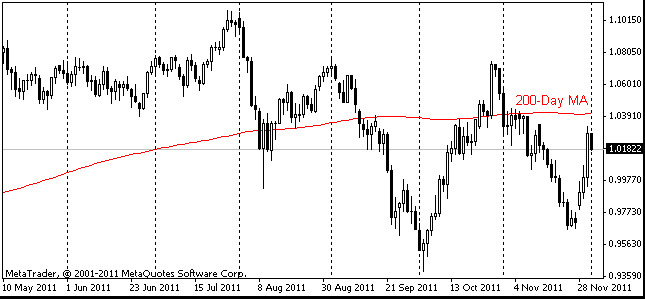EUR/usd
The story with Greece's adoption of the austerity package in exchange for private debt restructuring and another aid package from the EU/IMF has virtually wearied everyone. And formally this story is not over yet. As it turned out, the Greek Prime Minister negotiated the details of austerity measures with representatives of the troika, who said they first wanted to see the legislative approval of saving measures and only then would consider the aid payment. Of course, the last point will be mainly formal and therefore quick to settle. It is to take place at the upcoming weekend. However, the troika's fears are not at all groundless. Actually, Greece is on the threshold of elections, which will be held already in April. At such a moment none of the parties wants to be the one to promote tough economy. The meeting of the ECB's governing council was also of great interest for the markets. There draghi stated that the Bank plans to ease its collateral rules as, in their opinion, it is sure to help small banks and then to revive lending to households and companies. The euro rewrote the local maximum yesterday, having risen to 1.3320, but then sank to Thursday's opening levels on the profit fixations in the stock markets. Now it is still holding there, around 1.3260.

GBP/USD
The Bank of England met expectations of the market, having extended QE by 50 billion pounds up to 325 bln. From the very beginning the sterling showed a due reaction to the news: moderate increase. Such a balanced decision of the Bank confirms that this relatively small extension will make it possible to complete the programme just in three months, that is, if the improvement observed in leading indicators develops into full-fledged growth, it won't be necessary to expand the programme further in May. The Bank also mentioned improvement seen in some leading indicators. Despite this the lending decline in the fourth quarter suggests current weakness of the economy. Another favourable piece of news was the report on international trade. The total deficit has fallen to its lowest level in 10 years, having made only 1.1 billion in December. British trade with the EU has significantly improved as well. The most encouraging fact is that the trade deficit has been reduced mainly due to the increased exports and only a little bit due to the decrease in imports.

USD/JPY
The Japanese yen significantly declined on the triggering stops yesterday. It is noteworthy that the pair still keeps its positions even today despite the wide-range correction in other markets, leading to a correction in risky currencies like the aussie, Kiwi and pound. As follows from the past experience, the pair doesn't have any problems when trading between 76 and 78. So the further slight growth from the current 77.65 is quite possible, but are the bulls ready for the move?

AUD/USD
The Aussie has fallen victim to the correction. Despite U.S. bourses have closed positive, the Australian currency has been declining for three days in a row. Earlier today AUD/USD fell down to 1.07 against the high of 1.0840. This was triggered by data on the Chinese import cut. You see, Australia sends a quarter of its exports to this country, so the reaction was quite normal. In fact, it is really surprising that stock markets should show more optimism at such a time. It is possible that in the course of the day the correction will manage to develop into something bigger.
